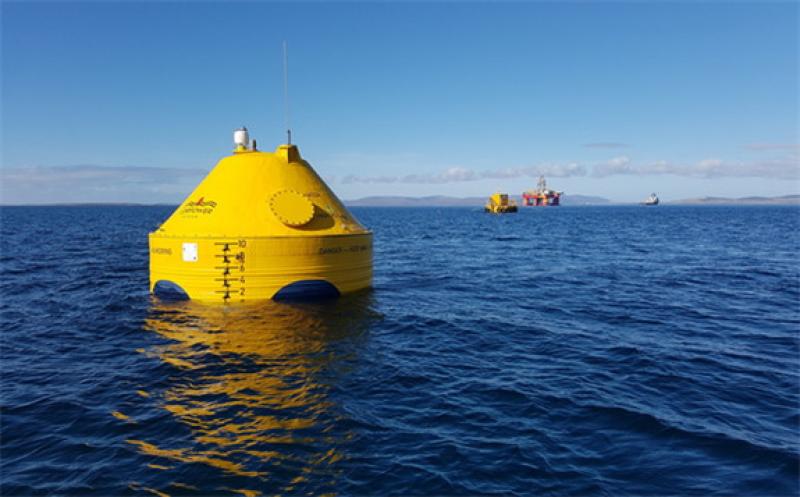An EU-funded trial to test the performance of new wave energy technology has indicated promising potential to boost cost, efficiency and carbon savings, with those behind the project hoping the results can help steer the nascent sector towards commercialisation.

Led by wave energy specialist CorPower Ocean, the WaveBoost project tested a new power take-off system for wave energy converters which it said helped boost annual electricity production by 27 per cent, while also helping to operate more safely and reliably.
The research released yesterday also pointed to improvements which helped to drive down the estimated Levelised Cost of Electricity (LCOE) by between 18-29 per cent compared to previous prototypes, and operational expenditure by as much as 70 per cent.
CorPower Ocean said the latest prototype also had 80 per cent fewer components, helping to reduce friction by 70 per cent and flow losses by as much as 90 per cent.
Meanwhile, lifecycle analysis undertaken as part of the project found the carbon intensity of the technology was comparable with other renewables technologies in operation today, and 10 times lower than that of conventional gas power turbines.
CorPower Ocean's technical project manager, Matt Dickson, said the results would send ripples through the sector, given that the design of the WaveBoost module is technology-neutral and can be applied to a wide range of wave energy converters.
"The successful completion of the H2020 Waveboost project marks a key milestone in our journey and unlocks our progress from stage three into stage four of our programme as we scale our WEC technology to full scale," he said.
Full array demonstration would then take place in stage five of the programme, and the company aims to introduce certified and warrantied wave energy converters to the market between 2023 and 2024, he explained.
The three-year project was led by group of British, Portuguese and Swedish firms and institutions, and funded under the European Union's Horizon 2020 programme. Other members of consortium include Arcos Hydraulik, the Research Institute of Sweden, EDP Innovação, WavEC Offshore Renewables, the University of Edinburgh, and the European Marine Energy Centre.
Proponents argue marine energy has the potential to deliver cost-effective and reliable clean power at scale and over a long period, but concerns remain over the technology's ability to deliver rapid cost reductions to compete with more established forms of renewable energy.
But Henry Jeffrey from the University of Edinburgh's policy innovation group said the project results would bolster wave energy sector's green credentials. "A key output of the WaveBoost project was a preliminary lifecycle analysis for an array of CorPower Ocean wave energy converters, which indicated a carbon intensity over 10 times less than conventional gas turbines," he said.